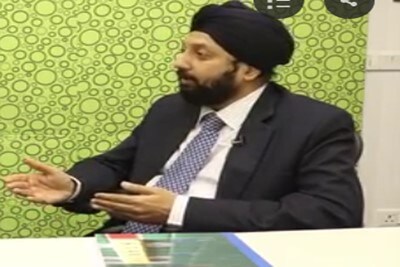With the start-up community in India facing funds crunch of late, the industry is expecting extension of tax holiday period, improvement of the compliance model and an easy tax regime in the forthcoming Budget 2017, to be unveiled on February 1, says Amarjeet Singh, Partner, Tax, KPMG in India. Terming the Start-up India programme of the Narendra Modi government as ‘big initiative’, Singh says “the centre has done lot of things but gaps are still there.” “Budget 2017 will be crucial for start-ups. Currently the tax holiday is available for three out of five years. But no start-up becomes profitable in five years,” Singh told FE Online.
Singh says there are a few areas which Finance Minister Arun Jaitley should look into to boost one of Prime Minister Narendra Modi’s top policy initiatives ‘Start-up India’.
1. Improve the compliance model so the start-ups can only focus on their business.
2. Government can extend the tax holiday for 7-10 years
3. There should be some guidance around tax returns, multiple funding.
“When we talk about start-ups, we talk about start-up eco system. The eco-system has three or four parts to it. One is state part of it which talks about policies, tax issues. Second is funding part of it and third is entrepreneurship. As far as entrepreneurship is concerned, there enough in India so the start-up eco system will thrive in this country,” he says.
Notably, India is home to over 18,000 start-ups, making it the third largest in the world after the US and England.
Noting that Amazon took 20 years to become profitable, he says start-ups should not be seen only from profitability and the social impact they make. Pitching for a longer period of tax holiday and flexibility, Singh says tax holiday gives a good feeling about operating in a country also.
“People, who are investing into start-ups, should be given capital gains incentives similar to as available in case of listed security,” he says.
He also says, in Goods and Services Tax (GST), there should be compliance holidays for start-ups. It will be useful if there is a mention about tax returns or GST in the budgetary process. Singh, however, voices concern that GST will create lot more compliance issues for e-commerce companies. “There is a withholding tax provision in GST for e-commerce companies which can a little more tax issues for them,” Singh says.
He, however, feels that for companies outside e-commerce and internet ecosystem, GST will be a game changer. “Overall economy will gain once more people come under tax net. GST will be a boon for this country,” he says.
Regarding Indian companies asking for ‘protection’ from foreign capital, foreign investment, he says more FDI should be encouraged into the country. “Most of the e-commerce companies’ capital is foreign capital so asking from protection from foreign competitors is not fair. If you are using foreign capitals, you should welcome foreign competition also. This will only make them become nimble footed, foreign technology and improve your business module within the country,” he says.
[jwplayer NKKwEY49]
Commerce and industry minister Nirmala Sitharaman had recently indicated that start-ups may get additional tax benefits in the forthcoming budget. The ministry has already suggested the finance ministry to consider raising tax holiday for start-ups to 7 years from the current 3 years to encourage budding entrepreneurs.
She had said that all the suggestions of the entrepreneurs have been compiled by the ministry and given to the finance ministry. Further she asserted that the government is committed to removing legislative hurdles, if any, being faced by them. The Centre is also involving local authorities, including states, to help the budding entrepreneurs in terms of local taxes among others.
In the last year’s budget, FM Arun Jaitley had announced a slew of initiatives. Start-ups have received 100 per cent tax exemption for three years and allocation of Rs 500 crore for SC/ST and women entrepreneurs, all of which is aimed at facilitating growth for these new businesses. Similarly to promote innovation, a special patent regime has been proposed with a 10 per cent rate of tax on income from worldwide exploitation of patents developed and registered in India.


